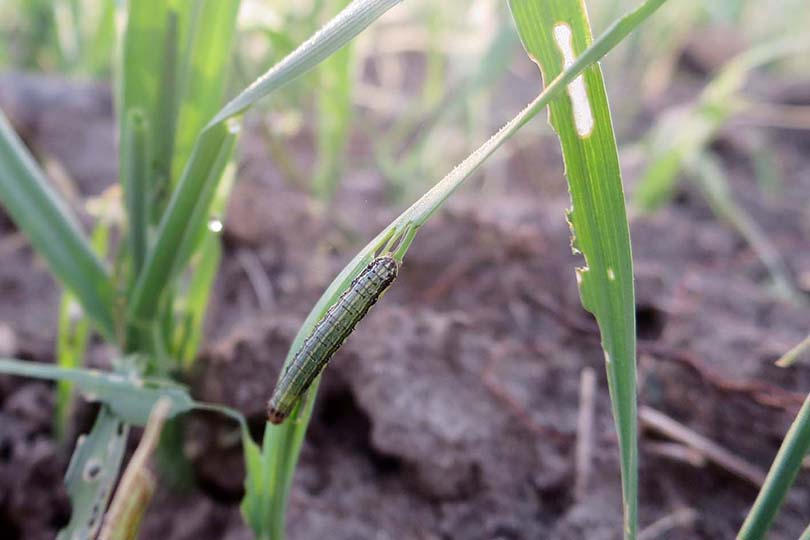By Adam Russell
AgriLife Today
Cool temperatures and wet weather created prime conditions for fall armyworms and major problems for forage producers around the state, said a Texas A&M AgriLife Extension Service expert.
Dr. Vanessa Corriher-Olson, AgriLife Extension forage specialist in Overton, said the recent temperature drops and rainfall across much of the state after a dry, warmer September and October created conditions for the pest to emerge.
This has been especially hard on emerging cool-season annual forage fields, she said.
Recent crop reports from county agents around the state describe farmers treating fields for armyworms, high numbers of the pest and devastated forage fields. Planting of winter forages was also delayed by infestations, and some farmers were forced to replant decimated fields.
“The biggest issue has been on cool-season forage fields,” she said. “Armyworms prefer the highest quality forage available, so at this point, they’ll pick the cool-season annuals over the warm-season perennials. When you have seedlings coming up, they can devastate a field overnight.”
Corriher-Olson said farmers who planted fields for grazing or forage production should scout pastures regularly, especially if temperatures cool or rain and cool temperatures follow a warm, dry spell.
Farmers should scout each morning for armyworms, she said. Armyworms are night feeders that try to avoid warmer daytime temperatures.
Armyworms are green, brown or black and can be identified by the white inverted Y on their heads. They can grow up to 1 inch in length.
The threshold for insecticide spray treating a pasture is three or more armyworms per square foot, Corriher-Olson said. Armyworms in those numbers should be treated immediately.
Armyworms in the last two or three days of their larvae stage consume 85 percent of their diet.
The pest got its name because groups appear to march across hay fields, consuming the grass in their path.
“Some producers get caught off guard because there is a misconception that if you spray warm-season pastures for armyworms earlier in the year that it takes care of them,” she said. “That’s not the case. When conditions are right, they emerge. And right now, conditions are right, and they are showing up around the state. So, if you have a pasture that has value to your operation, scout regularly and be prepared to apply pesticides immediately.”

